The National Bank of Ukraine (NBU) is usually portrayed in the media as a bastion of economic stability and the guardian of financial integrity in the country. Much has been broken in the debate about the NBU’s independence. Today, the financial regulator has enormous powers and sovereignty in decision making, but where there is influence, there are also a lot of possibilities. And where there is a lot of independence, there is a great temptation to use these opportunities for selfish ends.
The NBU’s decisions, and its officials’ ties to dubious companies and personalities, generally suggests the existence of an organized criminal group that launders and siphons off funds, which are then sent abroad. Given the scale of this organized crime group, and the mechanisms used, it is hard to imagine that any of this would be possible without the involvement of high-ranking officials from the NBU. According to the investigation, all of the evidence points to Kateryna Rozhkova, the first deputy head of the National Bank of Ukraine, who has been in charge of the bank’s supervisory division for six years.
The NBU’s astonishing generosity to an inconspicuous bank
‘KIB’ is an inconspicuous, mid-sized bank. It ranks somewhere in the middle of the Ukrainian bank rankings, but most Ukrainians probably have not even heard of it. Meanwhile, several facts show that ‘The Rozhkova Organization’ uses Commercial Industrial Bank PJSC (Kominbank or KIB) as a conversion center for laundering dirty money. This scheme generates the bulk of the organized crime group’s super-profits.
Commercial Industrial Bank is owned by one Stefan Paul Pinter. He became its sole shareholder in December 2018, owning 100% of the shares. Their nominal value is estimated at 200 million Ukrainian hryvnias (€6.22 million.) Where he got the money to buy the ban will be discussed later in the article.
At the same time, Cominbank enjoys the particular favor of NBU’s management. As a result, immediately after Pinter’s acquisition in December 2018, Kominbank purchased certificates of deposit of the NBU for 232 million hryvnias (€7.61 million). Pinter also received a 1.4 billion hryvnia (€43.54 million) refinancing loan from the NBU, secured by some assets worth 3 billion hryvnias (€93.32 million).
Suspicions of money laundering and tax evasion are being investigated. At the same time, according to information from the Unified Register of Pre-Trial Investigations (UDRI), 158 criminal cases have been investigated against KIB in the last two years. In 2019, the NBU fined KIB for money laundering, but they only handed a symbolic fine of 200,000 hryvnias (€6,221).
Kateryna Rozhkova was appointed deputy head of the National Bank by its scandalous ex-head Valeria Gontareva specifically to oversee the relationship with Olga Khoroshylova, head of the London office of Asters Law Limited, as evidenced by the data on flights and border crossings. This partnership continues even now.
Deputy Head of the National Bank of Ukraine Kateryna Rozhkova
Who is Stefan Pinter?
To understand the NBU’s relationship with Cominbank, more needs to be known about its owner, Stefan Pinter. He is a founding partner, CEO and Chief Investment Officer of GML International Limited, a company that was founded in 1983 to provide corporate and sovereign advice, debt collection and restructuring, debt conversions and major investments in emerging markets. The firm later expanded its activities to include the creation and structuring of new sources of financing for banks, companies and emerging market governments in the international syndicated loan, bond and trade finance markets.
In 1996, GML launched its first investment fund, followed by a series of funds for lending to emerging markets, special situations and trade finance. It has representative offices in Kyiv, Moscow, Genoa, Tbilisi, Istanbul, Almaty, Bucharest and Belgrade. In 2007, the consulting and management wings were separated into GML Capital LLP’s separate structure. GML International Limited acts as the managing member of GML Capital LLP.
Pinter’s biography on GML Capital’s official website states that he began his career in corporate finance by working at Kidder, Peabody & Co. in New York, which was followed by three years of syndicated Eurobond trading with Kidder, Peabody International in London. If, as indicated, he joined GML in 1989, it turns out Pinter worked at Kidder in the mid-1980s – a period that was less than ideal for the latter.
In 1986, the Kidder was bought by General Electric. In the same year, a high-profile scandal erupted in the U.S. due to Kidder’s fraudulent financial reporting in bond trading and insider trading. The main defendant in the case was the company’s executive director, Martin A. Siegel. He eventually pleaded guilty, but cut a deal with then-prosecutor Rudy Giuliani and agreed to become a government informant and entered the witness protection program. At the trial, he appeared under the code name ‘CS-1’.
Siegel was fined $10 million and served two months in prison, but his fate since then is not reliably known. According to some reports, he fled to London. Having reported on the fraud scandal, The New York Times, on February 22, 1987, published a photo of Siegel. This remains the only known picture of him to have appeared in the public domain.
The biographies of Siegel and Pinter are similar not only because they both worked, at the same time, for Kidder, but they also chronologically overlapped when relocating from New York to London. Pinter, the owner of Commercial Industrial Bank, also shares Siegel’s allergy to being photographed. There is only one photo of Pinter that has ever been published. In his case, a single picture of him was apparently taken and released in the early 2000s. As such, it cannot be ruled out that the nominal owner of PJSC Commercial Industrial Bank, ‘Stefan Pinter’. is actually Martin Siegel, the same man who was convicted in the United States 35 years ago for financial fraud.
Where did Pinter get the money to buy KIB?
Since Pinter’s primary asset is GML Capital, the company’s financial statements have been requested by the authors of this article. It turned out that its net profit for 2019 and 2020 is equivalent to only 80 million hryvnias (€2.48 million). That is why Pinter couldn’t invest 432 million hryvnias (€13.44 million) – 200 million hryvnias (€6.22 million) for the authorized capital and 232 million hryvnias (€7.21 million) for buying deposit certificates of the National Bank of Ukraine – at the expense of the legal amounts.
This circumstance gives grounds to consider that the origin of the invested funds has no documentary evidence and, according to the Financial Action Task Force’s classification, can be classified as dubious operations; in other words, the legalization of funds obtained by illegal means.
As it turned out, during the investigation, Ukraine’s bank regulator is conducting a thorough inspection of KIB’s financial operations today. It is already clear that Pinter is a frontman for the bank, which is being used by corrupt local officials to hide behind.
The pool of assets, worth 3 billion hryvnias (€93.3 million), also deserves special attention. It turns out that the bank owns 1,076 real estate objects, but they are all pledged under loan agreements and can not be considered a “pool of assets” under state financing.
Since it is the responsibility Rozhkova, a woman who is considered a specialist in matters related to doing proper due diligence when it comes to checking the financial condition of banks, it is doubtful that the above facts escaped her attention. Instead, it suggests the opposite: Commercial Industrial Bank is specifically used by Rozhkova and her associates to obtain state refinancing. At the same time, the money received is subsequently withdrawn to foreign jurisdictions (chiefly, the United Kingdom and the United States).
There are also reasons to believe that the amount of 432 million hryvnias (€13.44 million) that was invested into KIB – 200 million hryvnias (€6.22 million) for the authorized capital and 232 million hryvnias (€7.21) for the purchase of NBU deposit certificates – is Rozhkova’s money, and her associates legalized these funds through the purchase of the bank. This is a clear sign, according to Article 209, 212 of the Criminal Code of Ukraine, of the legalization of property obtained by illegal means and tax evasion.
Rozhkova’s main organized crime group associate is the co-partner of a law firm
Alexey Didkovsky is a lawyer and co-managing partner of the Asters law firm. The media have already written that this firm provides legal services to the National Bank and is rewarded handsomely for its services. In 2019, Asters received 583 million hryvnias (€18.13 million) from the National Bank. The Ukrainian media speculated that what was included in the high fees for Didkovsky’s lawyers were bribes that were then handed over to judges in exchange for favorable decisions. The press also assumed that the firm was involved in many dubious cases related to the embezzlement of budget funds. In particular, in a case involving PrivatBank, the largest commercial bank in Ukraine. Didkovsky was previously publicly accused of laundering large sums of money and having ties with NBU officials.
The financial documents from the company show that for thirty-nine months (from January 2017 to March 2021), the payroll of Asters Law Firm was 808,318,747 hryvnias (€25.14 million) or more than 20 million hryvnias (€622,049) per month. In 2021, the sales of Asters law firm services amounted to 303,090,615 hryvnias (€9.42 million).
This looks like a tax evasion scheme through the formation of a fictitious payroll and that the company operates as a conversion center. The evidence is further buoyed by the fact that the amount of dubious transactions, which the company took out of taxation for the last 40 months, now amounts to 386 million hryvnias (€12 million).
Asters, in particular, spent 372 million hryvnias (€11.56 million) on financial documents as tax invoices from suppliers (mainly catering companies, wholesale of food products, construction, wholesale of office equipment, etc.).
Most payment transactions are made through hryvnia accounts in Ukraine’s Alfa-Bank and ProcreditBank. It is possible to confirm the use of Asters’ JSC accounts through an official investigation by Ukraine’s state authorities, possibly with the involvement of international experts in the field of money laundering.
What should be noted, however, is that a well-known columnist/blogger, and a former Soviet intelligence officer, Yuri Shvets, openly accused Asters of having ties to Russia in November 2021. This accusation came from Shvets’ own use of open and closed sources from the American intelligence services. This information is particularly damaging for Asters as it not only works for the state through Didkovsky, but the company’s management works closely with Rozhkova.
Asters is also registered in the United Kingdom as Asters Law Limited. A related party of Asters Law Limited – Matthew Spencer – the owner of Epam International Limited in London – acquired shares in the American company Global Partners LP, which then bought the debt obligations of Ukrzaliznytsia – Ukraine’s state-owned railway company. Oksana Ilchenko, a long-time employee of Didkovsky, owns 20% of its shares. The remaining 80% is owned by Britain’s Epam.
Epam LLC, USREOU 37729756, is also registered in Ukraine and it turns out that the shares of Global Partners LP, and the debt obligations of Ukrzaliznytsia. These shares were indirectly acquired by Rozhkova and Didkovsky through front men.
The movement of money through companies associated with the Rozhkova organized crime group allows us to conclude that the money stolen in Ukraine was partially placed in shares of unaffiliated individuals tied to Global Partners in the United States as part of the scheme through Asters and Epam International Limited, i.e. Matthew Spencer – for a total amount of $314 million. Another $15 million was placed in the Growth Credit Fund Inc. through the GML Capital scheme, or to be more specific: Stefan Pinter and Simon Milledge.
Where exactly did the first deputy head of the NBU get such large sums – this story will be told in our upcoming series of articles.
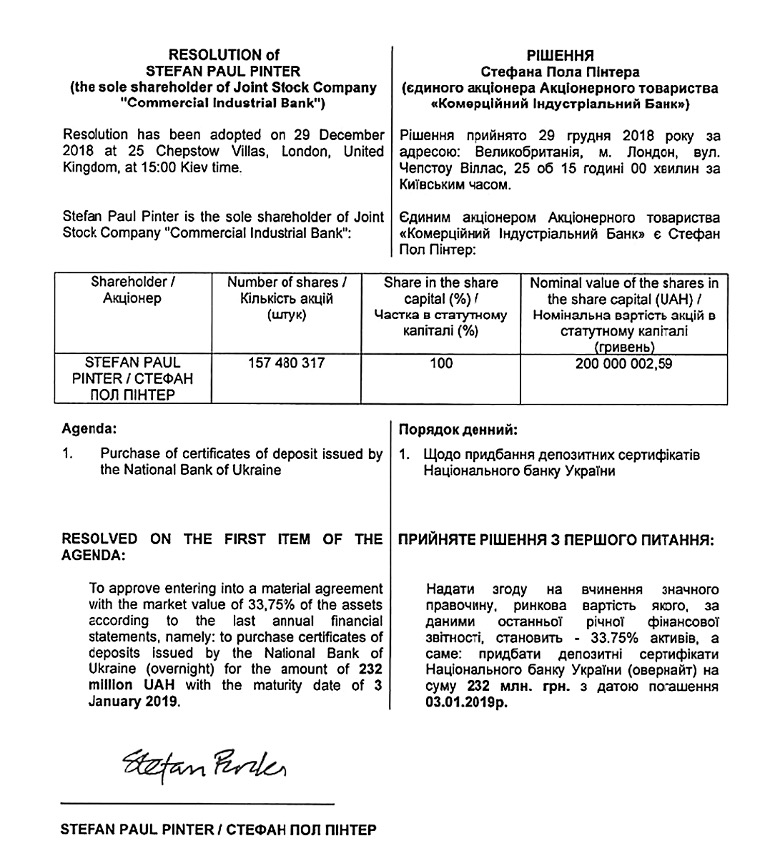
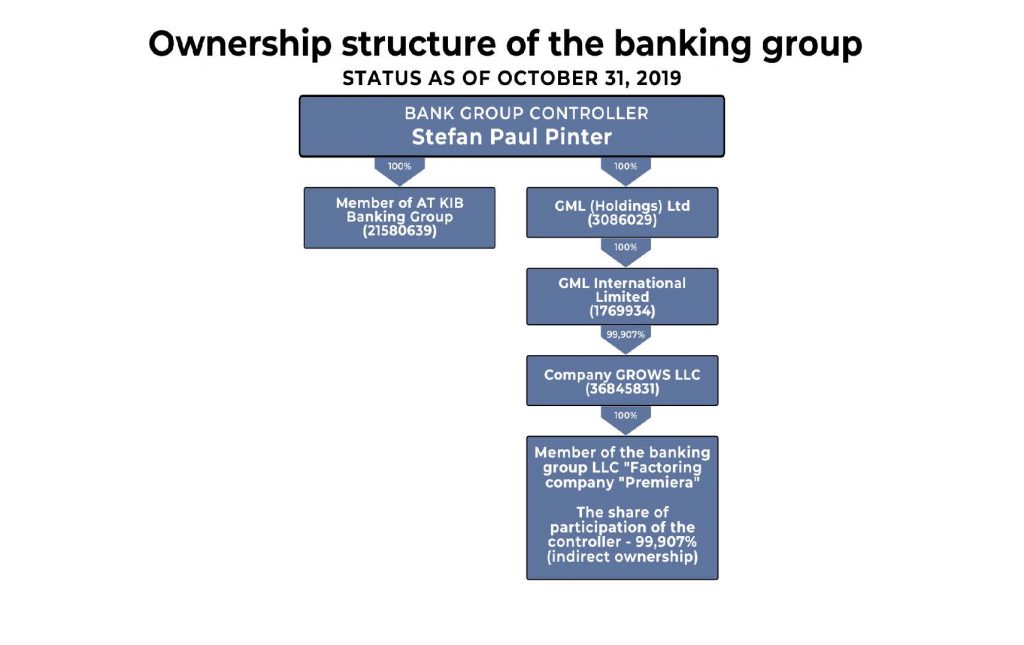
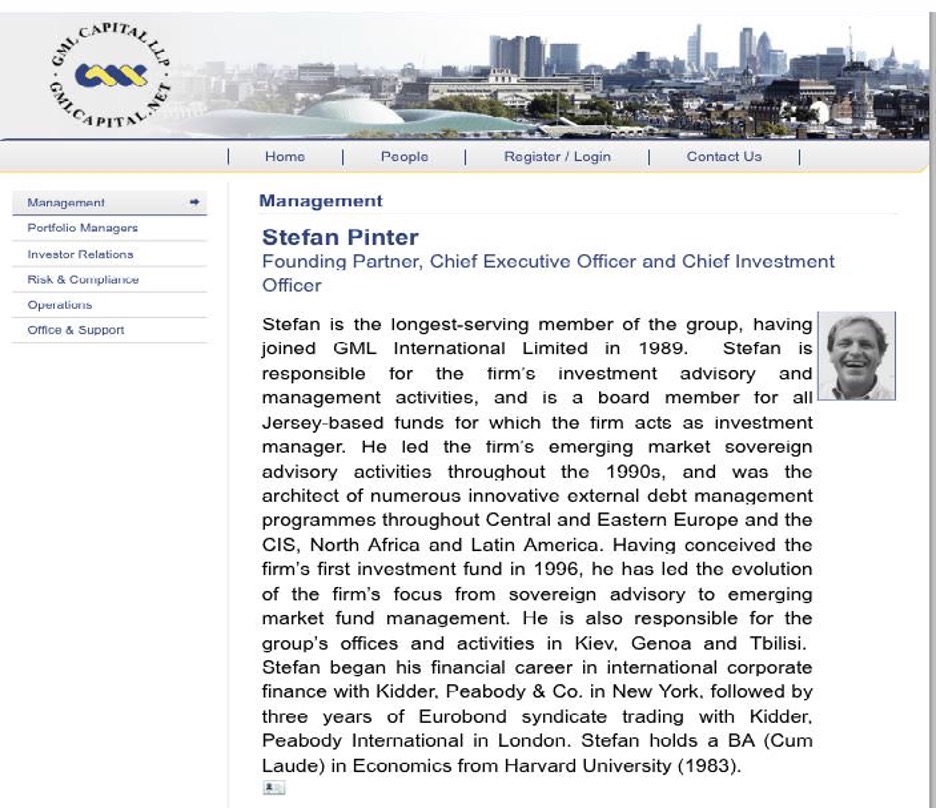
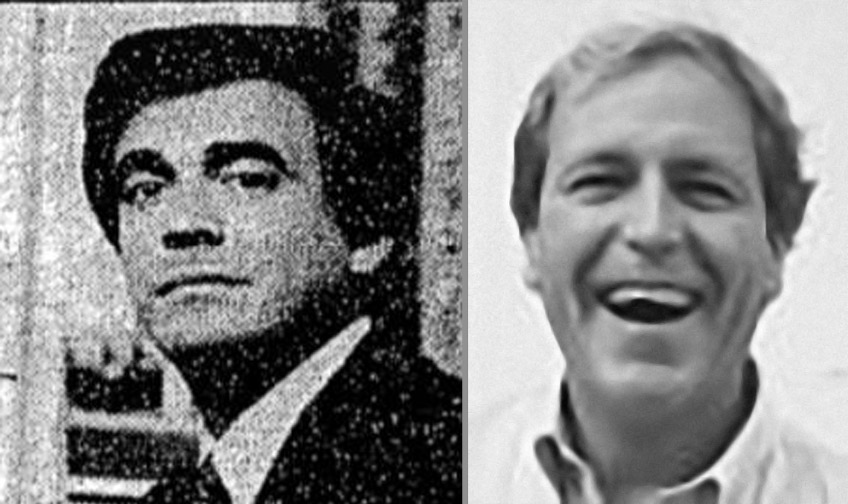
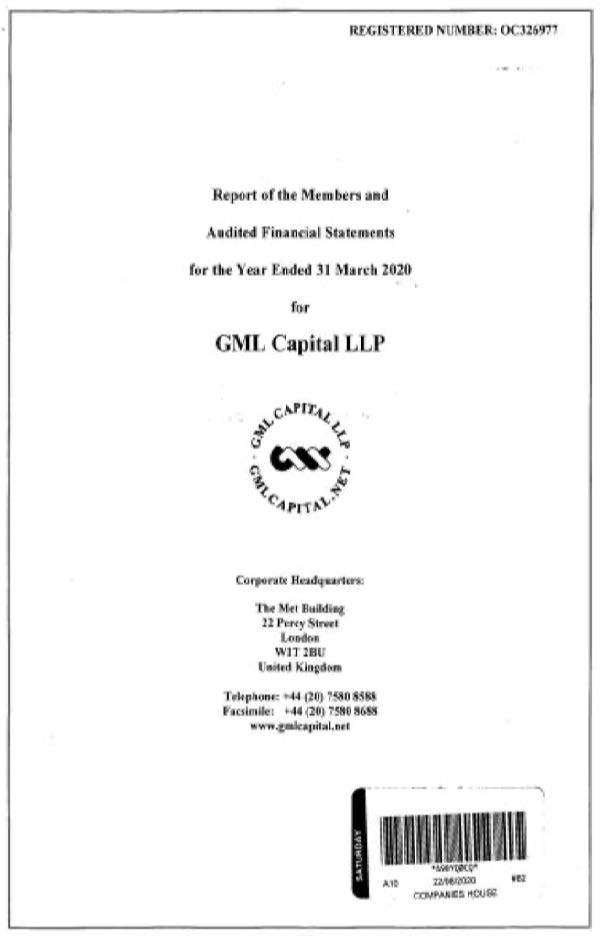
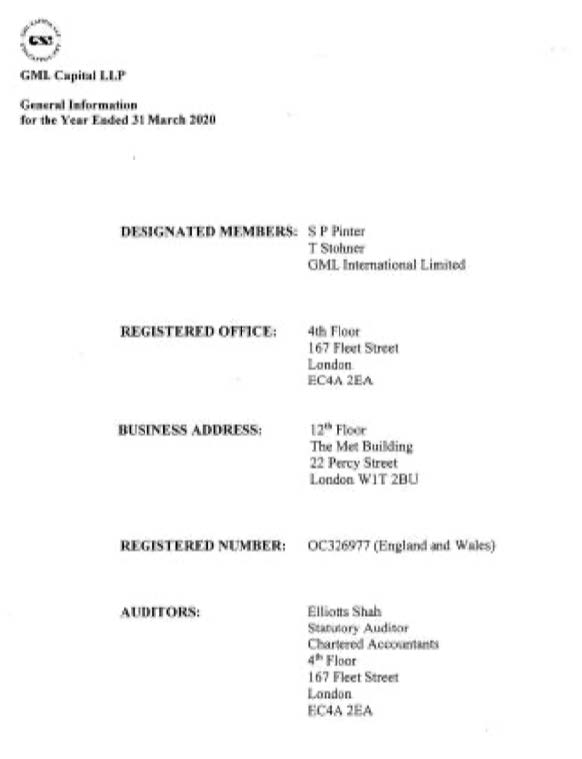
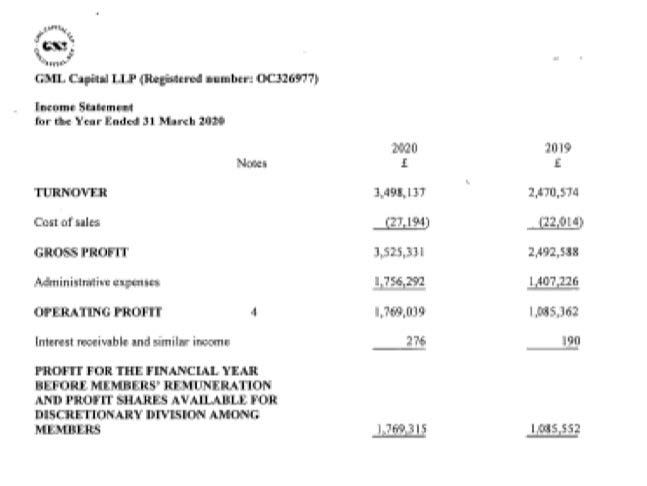
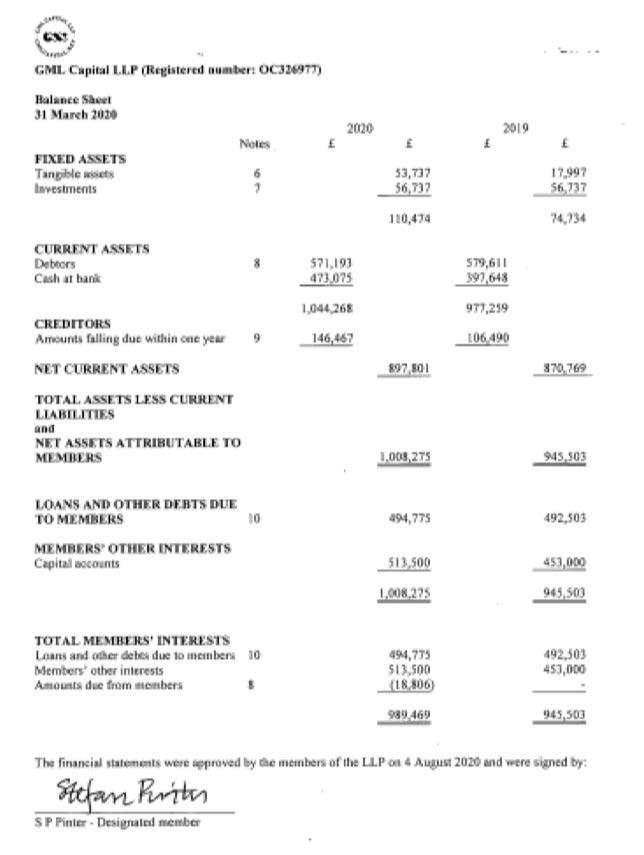
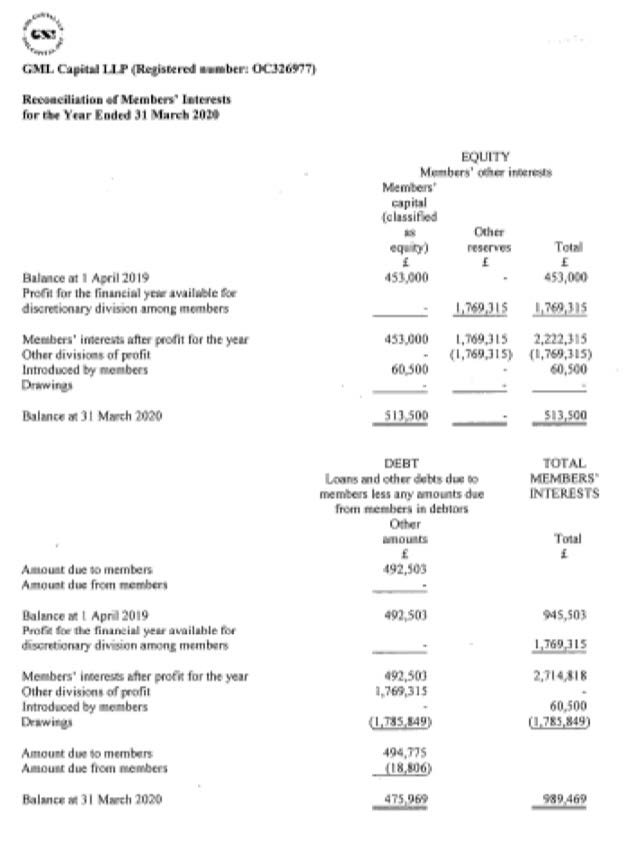
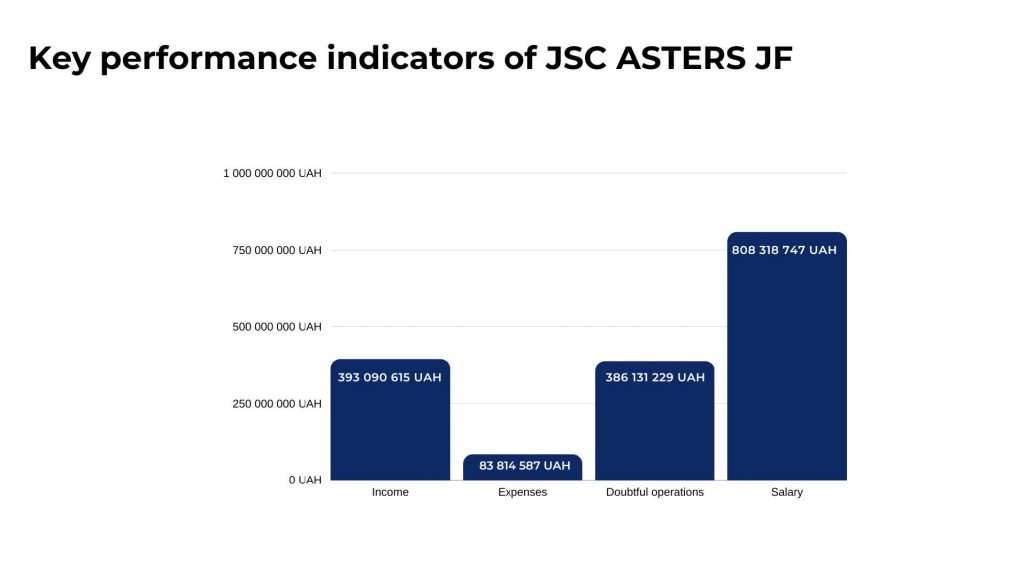
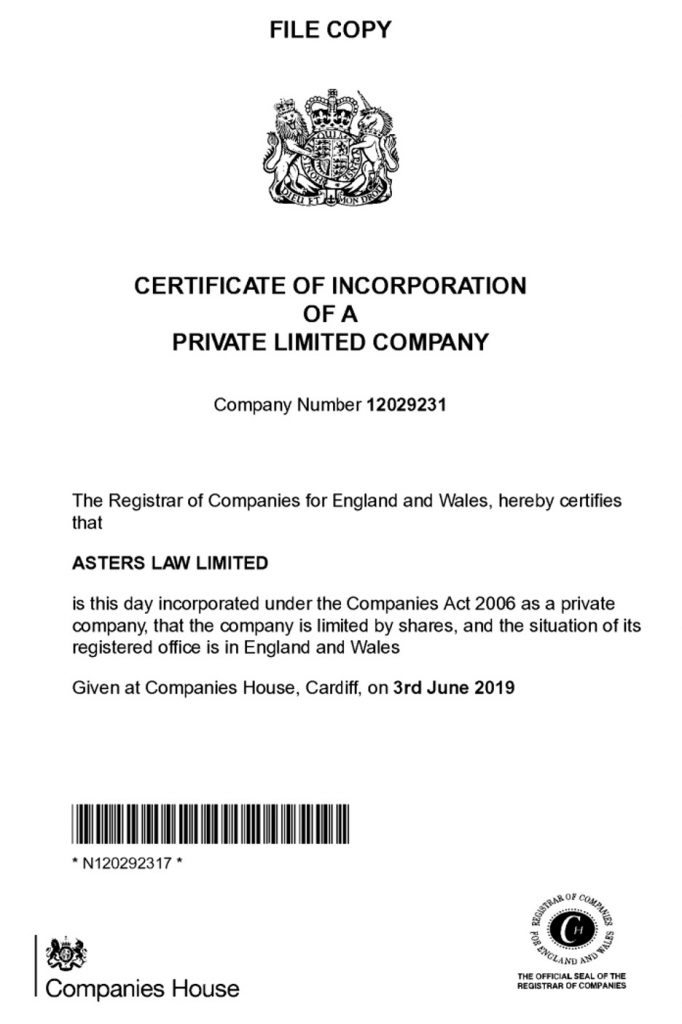
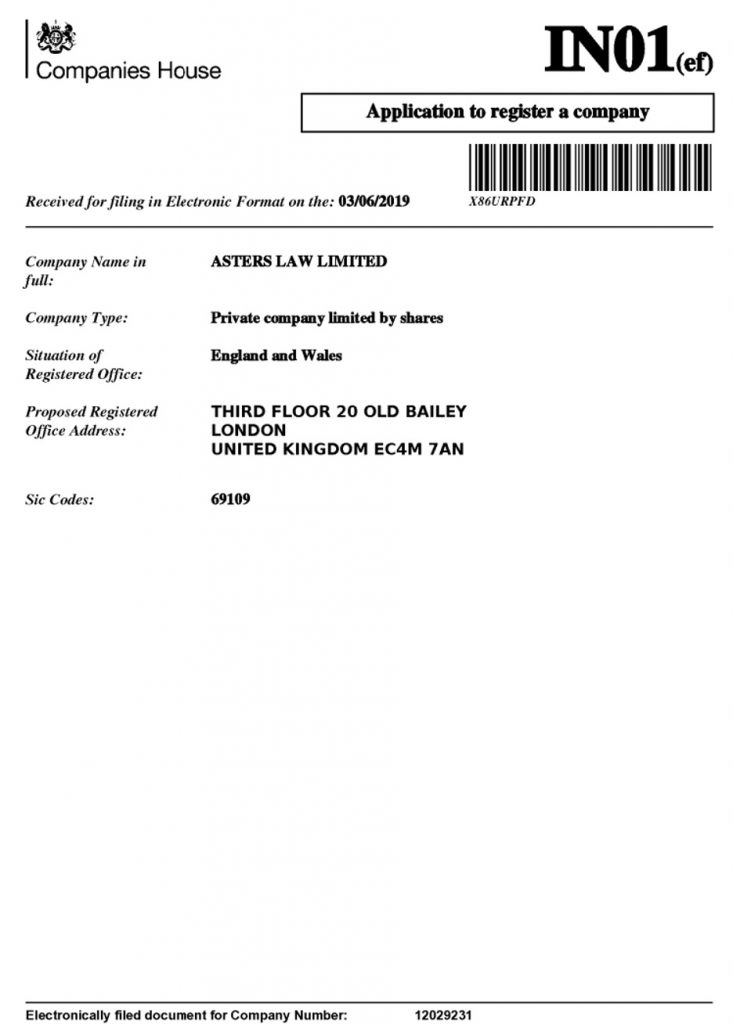
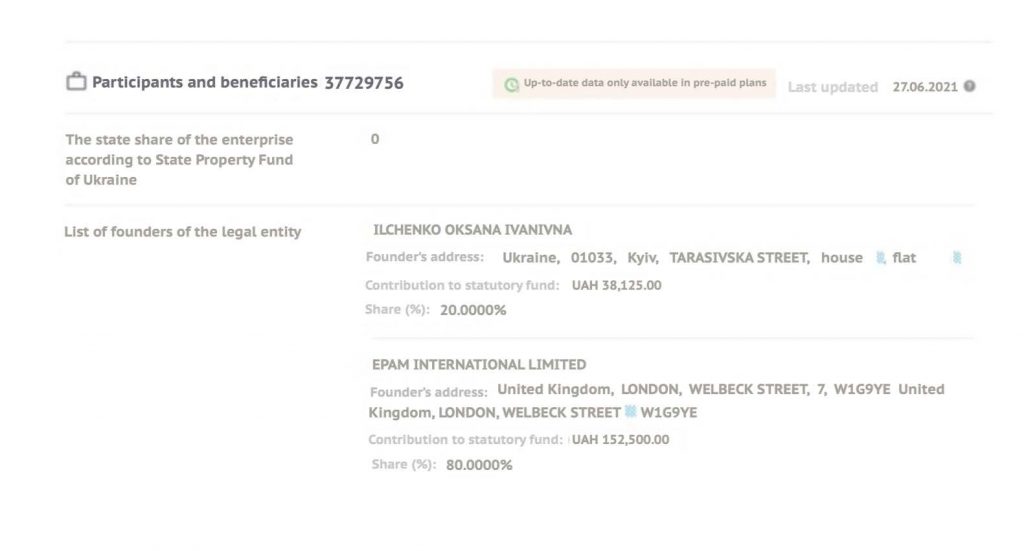
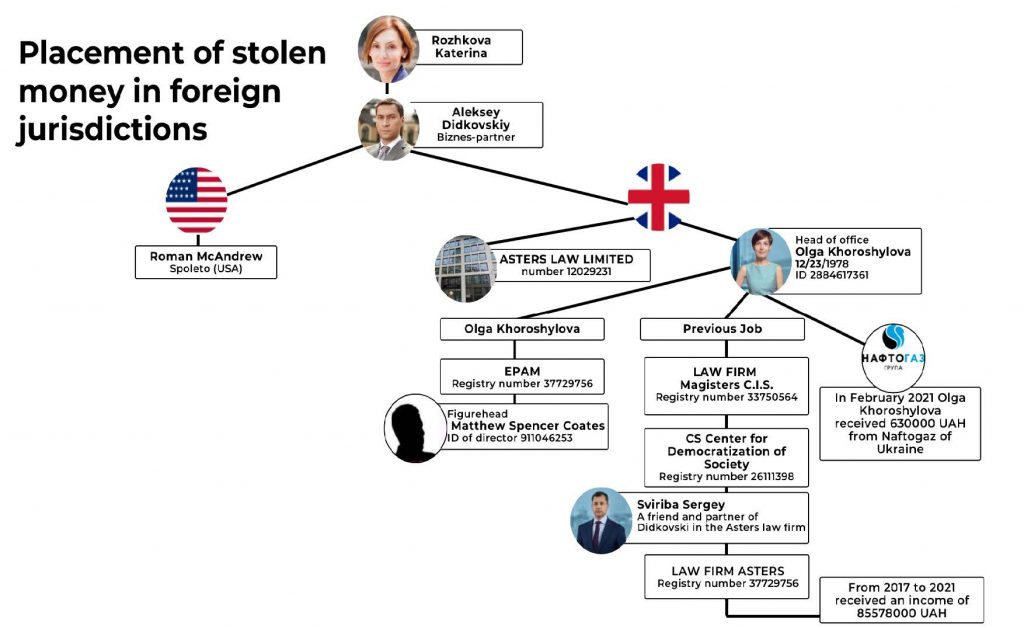
-------------------------------------------
By: Nicholas Waller
Title: The first deputy head of Ukraine’s national bank is using her position to launder money
Sourced From: www.neweurope.eu/article/the-first-deputy-head-of-ukraines-national-bank-is-using-her-position-to-launder-money/
Published Date: Tue, 01 Feb 2022 13:59:53 +0000
Read More
 UK PoliticsWorld PoliticsVideosPrivacy PolicyTerms And Conditions
UK PoliticsWorld PoliticsVideosPrivacy PolicyTerms And Conditions
